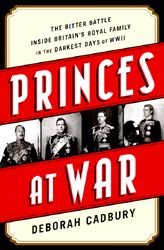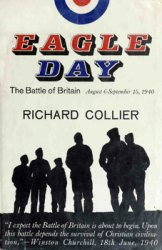• Myth: Puritan—someone who is desperately afraid that somebody, somewhere might be having a good time.
Fact: Puritans were not somber, morose people. They wore colored clothes, had games, celebrations, feasts, partook of "strong waters"—had strong aesthetic sense in their architecture.
Puritans were not opposed to pleasure, but saw its regulation as part of a well-ordered society. They were moral athletes who strove to standards higher than one had a right to expect. They drove themselves to great achievements—there was no rest short of the grave.
Puritanism was very similar to Judaism—they saw themselves as spiritual heirs of Abraham—entered into a covenant of Grace—God's chosen people who were creating a "New Jerusalem." "Never was a people so sure it was on the right track."
Puritans were not high-minded theorists but rather pragmatic people who were concerned with the way things worked in the real world. They fought among themselves over power, not how many angels could dance on the head of a pin. They were indeed frequently narrow-minded, but that can often be a source of strength. Puritanism was a very comforting religion despite harshness because it placed God in charge and eliminated worldly vanities. The Puritans were bookish and literate: They created the first college, the first bookstore, and the first newspaper in America.
(See Anne Bradstreet's poems, Appendix)
Marriage was for joy—to escape "burning" in hell; men and women were created different for each other's pleasure; divorce laws were relatively mild, and separation could be based on sexual incompatibility.
There was much premarital sex—about 10 percent of brides were pregnant at the time of marriage. (Anglicans in the South were much stricter.)
Because Puritans expected very little from life, few of them were disillusioned. The world was filled with evil—it was not a playhouse but a workhouse.
American individualism can be traced to the Puritans. Faith was their rock, but human intellect was highly valued: "Ignorance is the mother of heresy," they said.
The Puritans could be self-righteous and intolerant, although such tendencies have been exaggerated. Nevertheless, Puritans were hated by others. Their view of the world was very harsh: They saw the world as filled with depravity. Yet Puritans, Anglicans, Catholics, and Separatists were not that far apart; they shared many fundamental beliefs.
The sermon tradition of Puritanism still lives (as seen in TV preachers today.) Puritan sermons were lengthy exercises in logic—more like legal documents than literary events. (See Jonathan Edwards, Sinners in the Hands of an Angry God, Appendix.)
All government in the Puritan colonies was based on the shaky assumption that the Bible is clear and unambiguous, which is not true; controversy over proper interpretation of the Bible continues to this day.
Laws were strict: Crimes included blasphemy, perjury (death), cursing of parents, idolatry, adultery, fornication. Laws followed commandments and Deuteronomy; they also wrote laws as existed back in England.
Whatever the drawbacks, the church was the central unifying force in Massachusetts, which led to the famous town meeting. First held in churches, then separately, the town meeting is the "most remarkable if not the most influential institution to emerge in early America."
A connection exists between American public school tradition and the Puritans—also with higher education.
Dissenters: Anne Hutchinson and Roger Williams both ran afoul of Puritan authorities and were banished from the colony. Fear of dissension also led to the Salem witch craze, a terrible event but one that had far more gruesome parallels in Europe.
VIRGINIA-MASSACHUSETTS COMPARISONS. Differences are precursors of North-South differences of antebellum period.
• Two different kinds of people emerged:
O Massachusetts: People of proven ability at home o Virginia: People who could survive in wilderness
• Massachusetts aristocrats created democracy.
• Virginia planters replaced defunct London leaders.
• Massachusetts Bay colonists brought their charter with them, which gave them much firmer local control earlier. Congregationalism gave more local control.
• Burgesses and the assembly formed the basic political structure of Virginia. New England had the town meeting.
• Virginia became in many ways a model/miniature England-much closer than New England to the mother country, but still different. Maybe more conservative, much more self-conscious.
• The Virginia Assembly was the first democratic (republican) body in North America, but it began almost by accident in 1619. Charles I terminated the assemblies in 1624, but later authorized their return.
• Important precedent, including the idea of prohibition on taxes "other than by authority of the grand assembly." Englishmen had always guarded their right to tax locally.
• Early, dogmatic insistence on self-government important in American political development. Representative government born in the 17th century (Virginia assembly and New England town meeting).
• Most New England immigrants arrived as members of a nuclear family in which the father exerted strong authority. They therefore found it easier to cope with the wilderness and to preserve English ways. It was even possible to reproduce an English family structure in New England because the sex ratio was about even.
• Life expectancy was longer in New England than in the Chesapeake colonies because climatic and economic conditions were more favorable there.
• New England families differed from the English pattern in only one important aspect-people lived longer in New England. This meant that parents could expect to see their children grow up, marry, and have their own children. New England may have "invented" grandparents, who gave an additional measure of stability to Puritan society.




 World History
World History









